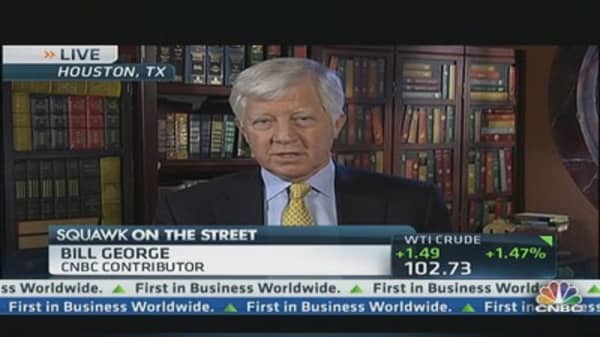Less than 90 days before Obamacare's government-run health exchanges are due to open up shop, Web insurers are still being locked out of helping sign up uninsured individuals—a lag that threatens to depress enrollments, and jack up insurance rates, experts tell CNBC.
Those experts warned that if dozens of Web-based markets—which already sell insurance online—continue to be shut out of partnering with government exchanges, it could lead to 1 million or more people failing to sign up for insurance under Obamacare.
And, they cautioned, the delay may signal that some of the exchanges won't be ready for business by the official Oct. 1 target date.
So far, none of the government exchanges being run by the federal government, individual states, or federal-state partnerships has given ehealthinsurance.com and other for-profit Web markets the green light to enroll uninsured individuals under the Affordable Care Act's subsidized coverage scheme.
"I'm just totally mystified, puzzled, flummoxed as to why the administration isn't using somebody like me to help," said eHealth CEO Gary Lauer, whose company is a leading industry player among a dozen or more Web-based markets that have sought to partner with various government exchanges.
Lauer noted that he had been an enthusiastic supporter of the new health law championed by President Barack Obama. But the stone-walling, foot-dragging and other inexplicable hurdles that he says his company has faced in offering subsidized insurance under that law has made him increasingly skeptical of the plan.
"I'm still a supporter of the legislation, I'm dubious of its chances for success," Lauer said.
EHealth has been in discussions with the U.S. Centers for Medicare and Medicaid Services regarding a Web-based exchange agreement which would allow the company to enroll subsidy-eligible individuals in the states where a federal exchange will be operating, Lauer said.
Last Friday, Lauer said he has "grown confident and hopeful" that eHealth could ink that deal with CMS "very soon."
But similar hopes by the company on that front have all, to date, come to naught, according to people familiar with the matter.
And Lauer also noted that in the 16 states and District of Columbia, which "are developing their own exchanges, we have yet to enter into a Web-based broker agreement."
Two big states to Web exchanges: Get lost (for now)
Two of the largest U.S. states running their own exchanges said they won't allow Web-based marketplaces from helping them enroll potentially millions of people in those states.
California's exchange told CNBC that it has rejected the idea, at least for the first year, because of technical difficulties of interfacing between the exchange and the Web markets.
"In the first year, we can't custom interface, we don't have enough bandwidth, we don't have the technological capacity," said Anne Gonzales, spokeswoman for the Covered California exchange.
Ironically, Covered California in 2012 awarded a $359 million contract to Accenture to implement its state health exchange, which was being based in part on software from Web marketplace Getinsured.com. But Getinsured.com itself—like other Web markets—cannot sell subsidized coverage of plans that are available on the exchange because of California's rejection of that idea so far.
(Read More: Will Obamacare hurt Jobs? It's already happening, poll finds)






